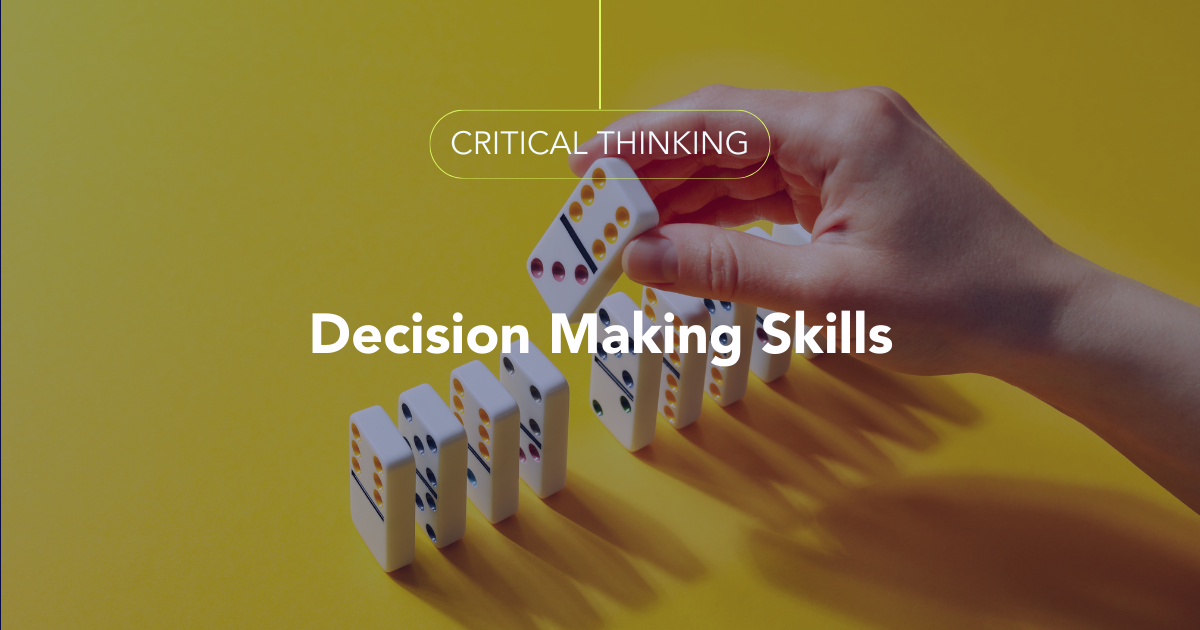Within this fast-paced world, the ability to make impactful decisions is increasingly crucial than ever. Whether in personal life, at work, or during critical situations, the choices we make can significantly affect our outcomes. Yet, the sheer volume of information and the constant demands on our attention can lead to decision overload, making it ever difficult to think clearly and confidently. This article explores simple yet impactful strategies to enhance your decision-making skills, helping you manage the complexities of choice with increased ease and confidence.
From understanding the psychology behind our decisions to learning how to analyze options in a effectively, mastering the art of smart decision-making is an essential skill. By incorporating proven techniques and frameworks into your regular routine, you can simplify your decision-making process and improve both the quality and speed of your choices. We will delve into various aspects of decision-making, including the balance between gut feeling and logic, the importance of emotional intelligence, and how to overcome the fear of making the wrong choice. With these tools and insights, you can equip yourself to make better decisions, even under stress.

Reliable Techniques for Intelligent Choice-Making
One practical technique for improving the decision-making process is to create a clear decision-making framework. By defining the elements that are important most for each decision, individuals can impartially evaluate options based on their aims and beliefs. This system not only improves the process but also lessens biases that might cloud judgment. For difficult decisions, tools such as decision trees or pros and cons lists can provide a clear illustration of choices, helping to explain the likely outcomes.
Another powerful strategy is to utilize the strength of intuition while balancing it with analytical thinking. Often, intuition derives from past experiences and knowledge, allowing for swift judgments in indefinite situations. However, integrating logic and data analysis ensures that critical information is not ignored. https://k12.instructure.com/eportfolios/974445/entries/3526821 between gut feeling and informed reasoning can lead to more confident choices, especially under pressure.
Finally, integrating mindfulness into the decision-making process can significantly enhance clarity and focus. By taking a moment to pause, reflect, and center oneself, individuals can alleviate stress and anxiety associated with making tough decisions. This practice allows for greater mental clarity and a more thoughtful approach, ultimately leading to more informed and more deliberate choices.
Dealing with Stress and Avoiding Fatigue
In the modern fast-paced environment, decision-making often is accompanied by high levels of pressure. leadership decision-making can lead to fatigue, causing individuals to choose less informed or hasty decisions. To manage this pressure, it's essential to implement techniques that foster mental clarity. Simple practices such as breathing deeply, stepping away from the situation momentarily, or performing brief mindfulness exercises can replenish your mental energy and provide a fresh perspective.
Avoiding decision fatigue is important for maintaining optimal performance in both individual and work contexts. One effective strategy is to curtail the number of decisions you take in a day. By organizing your routine and defining specific times for significant decisions, you reserve your mental resources for what really matters. Creating a well-defined decision-making framework can also aid clarify the process and lessen cognitive overload, allowing you to focus on the critical elements at hand.
Moreover, it's important to identify the signs of fatigue and pressure in your decision-making journey. When you start to feel overwhelmed, pause and check your emotional state. Recognizing stress can help you use coping strategies, guaranteeing that you do not allow apprehension or nervousness to distort your judgment. By prioritizing mental health and establishing a balanced approach, you can navigate decision-making with greater confidence and clarity, ultimately leading to better outcomes.
The Equilibrium of Intuition and Logic
In making decisions, finding the right ratio between intuition and logic can enhance our capacity to make successful judgments. Instinct often emerges from our unconscious mind, drawing on previous encounters and emotional cues that may produce quick, gut-level choices. While this instinctive approach can be advantageous in familiar situations, it can also lead to prejudices and hasty decisions when faced with novel challenges. Thus, recognizing when to depend on instinct is essential for making wise decisions.
On the other hand, logical reasoning involves a structured approach of scrutiny, weighing the pros and cons of different options. This method promotes thorough assessment and can uncover insights that gut feelings might miss. However, an over-reliance on reasoning can sometimes lead to stagnation by scrutiny, where individuals become confused with options and data, ultimately hindering decision-making. Achieving the ideal balance between these two methods enables us to utilize the strengths of each while minimizing their respective flaws.
To cultivate this equilibrium, individuals should work on blending both gut insights and logical analysis in their decision process. This may involve investing time to consider gut feelings while also acquiring pertinent data and viewpoints. Practicing mindfulness exercises can help enhance awareness of one’s gut feelings, while analytical tools can provide a structure for evaluating complex situations. By developing a harmonious relationship between intuition and reasoning, decision-makers can enhance their effectiveness, leading to more confident and holistic choices.
